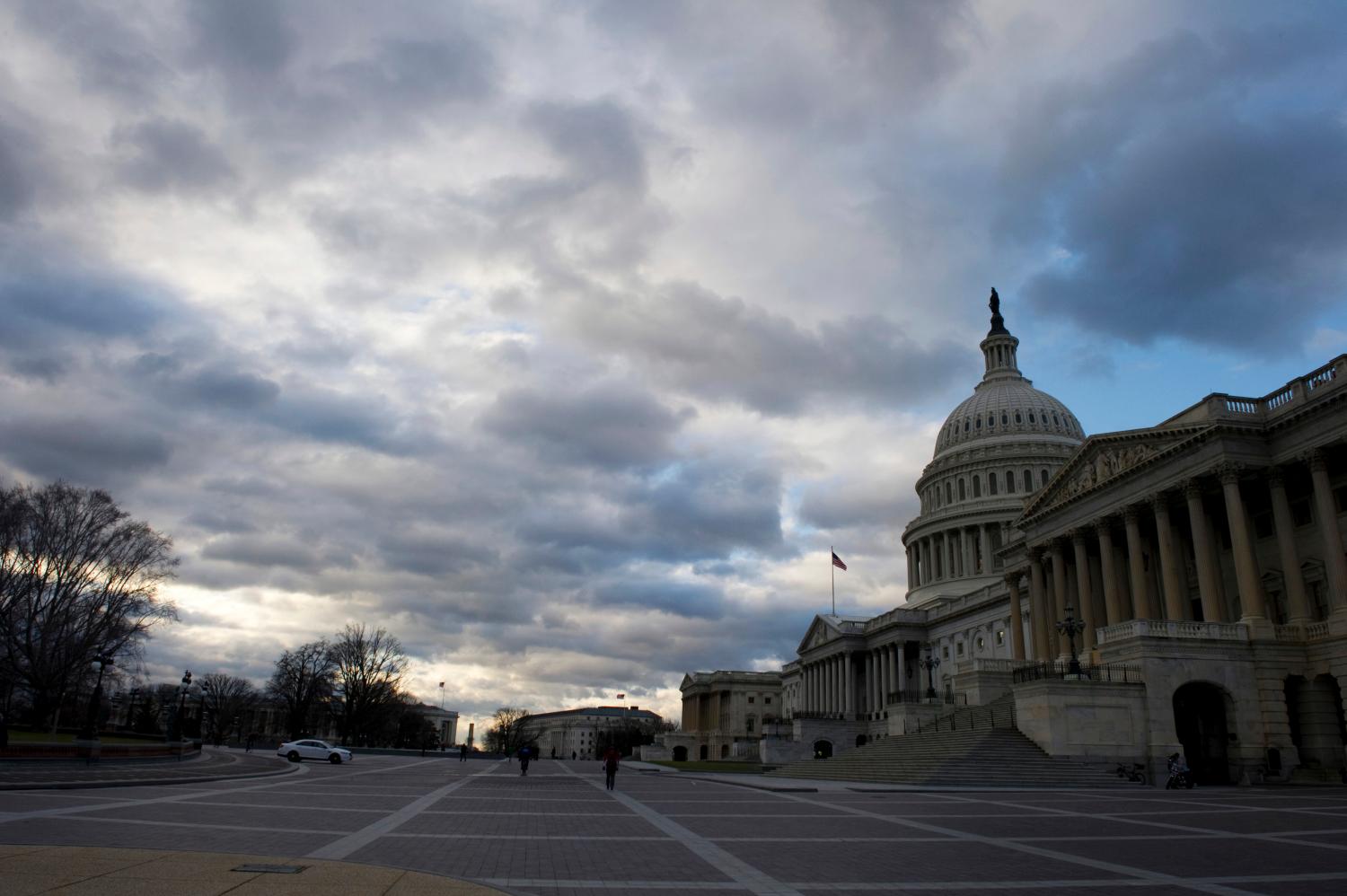When Congress writes a law, agencies often fill in the gaps between statute and policy by issuing rules, also known as regulations. In the case of the Every Student Succeeds Act (ESSA), the Department of Education (ED) has spent the last year engaging in the notice and comment process (illustrated below in Figure 1) to create rules that identify what states need to do to meet the requirements of ESSA.

Figure 1 outlines the steps that the department took to create the Accountability and State Plans rule (Accountability rule, for short) following passage of ESSA. The department published a draft rule on May 31, 2016. It then invited the public to comment on the draft rules, receiving over 21,000 comments. Upon publishing the final rule, the department also documented its responses to the comments, noting how the final rule reflected public input.
The rule-making process was controversial from the beginning. ESSA intended to move on from the No Child Left Behind era, decreasing the federal government’s role in education while increasing state autonomy. Because of this goal, Republicans in Congress consistently criticized the Obama administration’s Department of Education for using the rule-making process to ramp up the federal role, contrary to the law’s intent and expressed publicly at congressional hearings.
The Obama administration published a final Accountability rule in late November. The Department of Education ultimately backed off on several of the most contentious provisions included in the draft rule, and the final rule reflected these compromises. Chris Minnich, executive director of the Council of Chief State School Officers, initially praised the department for these changes: “It is clear the U.S. Department of Education listened to the feedback from state education chiefs across the country and made several important changes to ensure the accountability provisions in the Every Student Succeeds Act can be implemented in all states.” The Accountability rule establishes requirements that states must follow in designing accountability plans under ESSA, most notably publishing a template for states to use to submit their plans to the department for approval.
Despite being finalized after a yearlong process and ultimately in keeping with the statutory intent to have states be the primary policymaking venue, last Tuesday, the House passed a joint resolution that would use the Congressional Review Act (CRA) to revoke the final Accountability rule. If the Senate passes this resolution and President Donald Trump signs it into law, the department could not issue any rule in the future that is “substantially the same” as the revoked rule. Revoking the rule under the CRA thus raises two potential concerns: It may disrupt ongoing state implementation of ESSA, and it may result in the Department of Education substituting an ad hoc, opaque process for the standard rule-making procedures.
State-level implementation is well underway
Revoking the Accountability rule via the CRA may sound to lawmakers in Washington like the perfect opportunity to continue rolling back federal encroachment in education policy. But for state and local policymakers, repealing the rule may undermine their ongoing work to implement ESSA and reinject Congress into extant state-driven policymaking.
Appropriately, states actively participated in the notice and comment period for ESSA regulation and persuaded the department to grant them more flexibility in the final rule compared to the draft rule issued in May. States’ participation in the federal regulatory process over the past year belies the fact that–in keeping with statutory intent–the real policymaking action has been occurring at the state level.

Figure 2 shows that states are well underway in their efforts to draft state plans that align with the final rule. At publication, 22 states are so far along in their state plan development processes that they have posted at least one draft of their completed state plan using the current template to their website. Notably, nine states published draft plans before the rule was finalized. An additional eight states released the first draft of their plans between the date the Department of Education published the final rule and Inauguration Day. At the time of publication, an additional five states released draft plans even as Trump paused the enactment of all rules published in the last days of the Obama administration until March.
The flurry of state-level policymaking under this rule suggests that state policymakers are already holding the reins when it comes to designing their new accountability systems. Perhaps state policymakers do not perceive the rule as overly restrictive or burdensome, as proponents of repeal argue. If this were the case, it would seem that states would have an incentive to drag their feet, particularly in anticipation of a change in administration.
However, it seems that the opposite is occurring, as many states were well on their way to developing accountability plans both before and after the department issued the rule, though it has yet to take effect. Repealing the final regulation may not mean that state policymakers will need to start from scratch, but it also appears to be an unwarranted step if the purpose is to grant states flexibility and autonomy.
Repeal may thwart transparency, state agency
One of the rule’s architects recently noted that the rule itself contains provisions designed to increase the transparency of this process at the state level. In the past year, every state has formed advisory groups tasked with developing particular aspects of the consolidated state plans. Every state has engaged in meaningful stakeholder engagement in the development of their draft plans–holding public meetings, workshops, and hearings. Many states have also used their websites to accept comments from the public, through either a dedicated email address or a survey instrument. In some states, state legislatures and the public are reviewing consolidated plans.
One potential implication of repeal may be that states are induced to revisit aspects of their plan through a less transparent process. While it is unlikely that states would start from scratch if Congress revoked the Accountability rule, it would be disruptive and would have unclear consequences to state education agencies and policymakers who have been working closely with stakeholders and taxpayers on their plans.
Repealing the regulations may also result in ad-hoc policymaking by the Department of Education. We have already seen the signs that even in the case of repeal, the department cannot afford to stay silent on core issues like providing a timeline for states to submit their plans to the federal government and offering a template to guide implementation. On Friday, Education Secretary Betsy DeVos sent a “Dear Colleague” letter to the states’ chief school officers, assuring states that the timelines for submitting plans to ED would be the same as the timelines established in the Accountability rule. The letter also stated that there would be a process for creating a new template for the state plans by March 13 of this year, replacing the template that states had been using in their own outreach and regulatory processes.
This letter, in an apparent attempt to offer clarity, raises more questions than it answers. Who would be in charge of designing this template? The letter suggests that “a State or group of States” may be allowed to work together to develop this template, perhaps working with the Council of Chief State School Officers to ensure that it meets the department’s requirements, but also that the department will produce a template by the March 13 deadline. The lack of precedent under the CRA makes it hard to say how ED would interpret their authority to issue guidance or subject these templates as drafts to a notice and comment process, or whether this latter option would be possible given CRA’s “substantially the same” restriction. It is also unclear whether overturning the rules would give more leverage to the Department of Education than they otherwise would have as they review states’ plans in the absence of a regulated template.
While not all parties were completely satisfied with the final rule, as the current repeal effort suggests, ED created this rule by following the well-known standards for the notice and comment process established by the Administrative Procedures Act. This process is designed to allow for public input and transparency in the regulatory process. If this rule is repealed, the department will find itself in a procedural wilderness. If Congress revokes this rule under the CRA, ED is barred from issuing a “substantially similar” rule for an indefinite period. What exactly this means in terms of future regulation is unclear, as the CRA has been used only once, and neither the bill’s sponsors nor ED have indicated whether another Accountability rule would be viable, or if so, whether the department would engage in the notice and comment process to create a new rule.
Reopen the notice and comment process if repeal is truly necessary
In our view, there are two reasons to think very carefully about whether to proceed with the repeal process. Calls for repeal appear to be coming from members of Congress rather than policymakers on the ground in states who have in fact been hard at work designing their accountability systems within the existing framework established by the rule. At the same time, repealing the rule via the CRA forecloses the opportunity for the Department of Education to initiate a notice and comment process to replace the rule, raising serious concerns about the transparency of replacement efforts.
If states do indeed find the rule overly burdensome, there is an alternative to repeal through the CRA: The Department of Education could initiate the standard notice and comment process to remove the rule. Unlike under the CRA, the department would then be free to create a new rule, again through the notice and comment process.
This would take time, but it would allow for public deliberation on this important issue and ensure that every state’s input is valued. In stark contrast, rapid repeal under the CRA followed by an opaque and hurried process for a replacement template is imprudent. This result would undermine trust in the statutory intent of ESSA which is to hold schools accountable for their students’ learning through state-driven policymaking.
The Brookings Institution is committed to quality, independence, and impact.
We are supported by a diverse array of funders. In line with our values and policies, each Brookings publication represents the sole views of its author(s).






